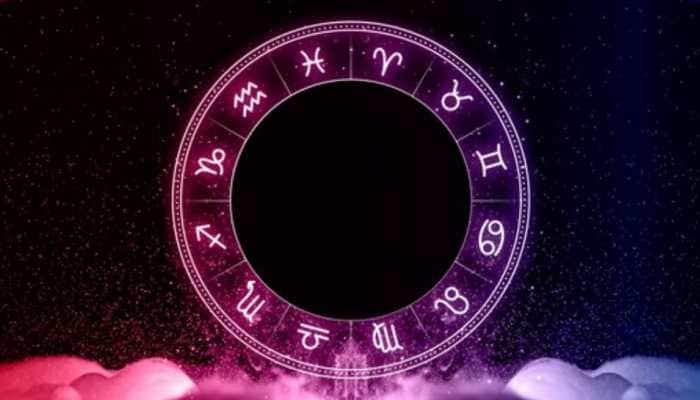Ritesh K Srivastava
"The evil that men do lives after them, the good is oft interred with their bones" said Mark Antony, speaking of one of the greatest dictators of history, Julius Ceasar. Whether the quote is applicable to Hitler, another ‘Great Dictator’ is contentious, like many other aspects of the Nazi leader’s life. What is beyond contention though, is the fact that for good or evil Adolf Hitler irrevocably changed the course of history. His immense hatred for Jews and the ethnic cleansing, his invasion of Poland, his belief in racial supremacy, extreme nationalism and state-organized murders during his tenure have given enough fodder to the researchers, journalists and historians the world over for more than half a century.
Although the former German Chancellor, who was undisputedly one of the most influential persons of the twentieth century, is long dead, he still continues to arouse passions in millions of people – mostly of the deeply antagonistic kind –for what he did and for what he actually intended to do.
Most of the world considers Hitler as the great archenemy of the 20th century, but his small group of admirers believe that he could have accomplished great and good things if he had gone the right way.
The German dictator, who was born on April 20, 1889 in a small Austrian town called Braunau, adjoining the German border, gave birth to the idea that is today known as ‘Hitlerism.’ This idea was not that much different from many radical racial ideas of the time, but simply acted on them in a very deliberate way.
Hitler’s impact can be gauged from what the US Ambassador to the United Nations wrote a few years back, “The essence of Hitlerism is still alive, still causing millions of deaths." Holbrooke wrote these lines when he reluctantly nominated Hitler as the century`s dominant personality.
And if this is not enough, here is another instance which showcases how Hitlerism still ignites people, how it still exists in ethnic enclaves, on numerous websites, in the corridors of schools like the Columbine High School – where two boys mercilessly shot children to celebrate Hitler`s birthday – and many other places.
The Holocaust, which took place during Hitler’s rule in Germany, is believed to be a direct outcome of the political actions and ideas of Germany’s fascist military bureaucracy.
The German dictator -- who believed in the adage, "one works best when alone" -- evolved his own theories, as he was absolutely unimpressed with the theories regarding democracy, Parliamentary-style government, concept of trade unions, racism and sexuality that existed during that time.
Hitler and democracy
Democracy, in its essence is a political order in which there exists elected officials, where free and fair elections are conducted, where there is a right to run for public office, where the right to freedom of expression, the right to alternative information and associational autonomy is not curtailed. Peoples’ rule remains the most vital characteristic in any reference to democracy, which fundamentally sets democracy apart from other political orders.
But Hitler was virulently antipathetic to democracy. He often criticised the Western concept of democracy because of its slow pace.
He believed that democracy would in practice lead to the destruction of a people`s true values. Hitler was of the opinion that individuals operating in a democracy are not able to work with their fullest potential due to compromises both in principle and practice that normally occur. This is evident from the fact that when Hitler was elected democratically in 1933 he suppressed all opposition.
His perception of democracy is also reflected in Mein Kampf, where he writes, “The Nazi Party must not serve the masses, but rather dominate them. The Fuhrer is the supreme judge of the nation.”
Hitler and trade unions
Hitler never supported trade unions and had an overall disregard for the masses and the working classes. This is evident from the fact that when he rose to power, he broke all promises he had made to the workers. Hitler cleverly replaced trade unions with an organization called the `Labor Front`. This organization was actually a tool to serve his Nazi Party’s interest and did not operate in workers` favor. The law, which created the Labor Front, said, "Its task is to see that every individual should be able to perform the maximum of work."
Hitler and racism
Hitler strongly believed in racial supremacy and often attributed the world`s progress in science, technology, and art almost exclusively to Aryans. He was of the opinion that for the world to progress it was highly imperative that the purity of race (Aryans) be maintained. In his autobiography, Hitler mentioned, "Those who do not wish that the earth should fall into such a condition …must realize that it is the task of the German State in particular to see to it that the process of bastardization is brought to a stop." By the term `bastardization`, Hitler meant that the interbreeding of the races, particularly between people of Aryan and Jewish descent, should be stopped.
Hitler had a very cynical view of the Jews, who prominently featured in all his speeches and writings. He held the Jews responsible for most of the problems and evils in the German society as well as the world. According to him, the Jews were to be blamed for inflation, political instability and unemployment. During the Third Reich, Jews were strongly urged to emigrate and were excluded from prominent professions, civil service and the arts, and their property was systematically taken by the State. His elevation of man was limited to Aryans and based on the assumption that the Aryan race was inherently superior to all others.
However, there is another side of this story. Hitler’s sheer hatred for Jews can be attributed to several reasons. According to Nazi Hans Frank, the shadowy background of Alois, Hitler’s father, was a potential source of embarrassment for the German leader.
Hans disclosed that Hitler`s father was the illegitimate child of a cook named (Maria Anna) Schickelgruber. This cook, the grandmother of Adolf Hitler, was working for a Jewish family named Frankenburger, when she became pregnant. Frankenburger paid Schickelbruber, a paternity allowance from the time of the child`s birth up to his fourteenth year. Alois was not very supportive as a father to young Hitler. On the other hand, Hitler’s mother Clara was very caring and loving. She doted on her son and took his side whenever any confrontation between the father and the son surfaced. Hitler also fondly carried a photo of his mother with him where ever he went.
As a “prophet of Aryan greatness" Hitler compared himself to a doctor whose job was to eliminate “parasites or germs” called the Jews.
Hitler’s extreme nationalism and rise to power
After the end of the World War I Germany was a nation in political and social chaos. In Berlin and Munich, left-wing Marxist groups proclaimed Russian-like revolutions, only to meet violent opposition from right-wing nationalist Freikorps (small armies of ex-soldiers for hire) along with regular Army troops.
Communists, Socialists and even innocent bystanders were brutally tortured and murdered during 1919, in Berlin and in Munich.
Amid this political turmoil, on June 28, 1919, the Treaty of Versailles was signed by the victorious Allies of the World War I. The German democratic government then ratified the treaty. Under the terms of the treaty, Germany alone was compelled to accept responsibility for causing the war and had to pay huge war reparations for all the damage. The Germans had to reverse the lands annexed from France and Poland during the battles. The German Army was restricted to 100,000 men and was forbidden to have submarines or military aircraft.
The treaty was very humiliating to the Germans. This led to a passionate desire in many Germans, including Adolf Hitler, to see their nation throw off the "shackles" of the treaty – and see the "rebirth" of Germany through a strong nationalist government.
The `Stab in the Back` theory also became popular among many Germans who found it impossible to swallow their country’s defeat in the World War I and felt betrayed.
The Great Depression of the early 1930s resulted in the economic and political collapse of the Weimar Republic, Germany`s post-World War I experiment in democracy.
Adolf Hitler demonstrated his political skill in taking advantage of the opportunity provided by these factors. He developed his Nazi Party into a mass movement and used a combination of his popular support and behind-the-scenes intrigue to propel himself into power. Once he rose to power, Hitler moved with ruthless determination to crush his opponents and establish his totalitarian dictatorship.
The other side of Adolf Hitler
Although, Hitler is regarded by many as one of the cruelest persons to have been born, he was not without a softer side. William Hakvaag, the director of a war museum in Norway, recently stumbled upon some cartoons hidden behind a painting in the museum. Although the authenticity of the paintings is yet to be ascertained, however, early reports suggest that the creator of the cartoons could well be the German dictator himself. Scientific evaluation of the paintings have also determined the time period of the paintings to the 1940s, a period when the World War II was in swing.
Hitler’s lust for painting or for that matter performing art could be understood from the fact that in his autobiography ‘Mein Kampf’, he himself mentioned that his first ambition was to be a painter.
Hitler also supposedly possessed a personal copy of Snow White, the animated adaptation of the classic. It was one of Hitler’s favourite films and special screening of Snow White used to be held at his private theatre.
He was also courageous. Great things, even of evil, are not accomplished without courage. He was also indecisive, as many changes in his plans during the course of the II world war demonstrate. He suffered from a chronic lack of patience and his idea of compassion was very Darwinian, to say the least. His view of the world was a simplified combination of all the extreme good and bad ideas of the time.
The passage of time has made a legend out of Hitler, surrounding his persona in mysteries, stories and controversies. Did he actually die when he supposedly died? Did he kill himself or was he murdered? Did he use cocaine, to still the constant twitching of his eyes? Many of these questions small and big have been left unresolved. Suffice it to say that Hitler would continue to loom large in public memory for quite some time to come.







)
)
)
)
)
)
)
)
)
)
